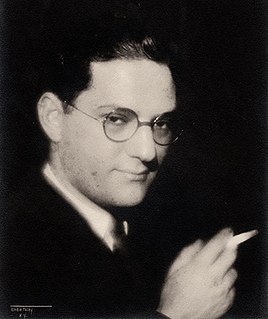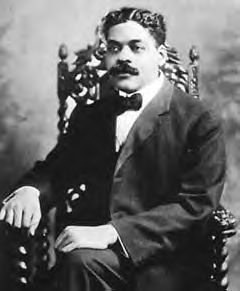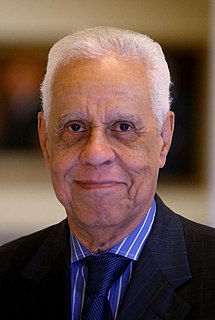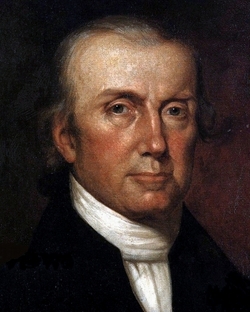A Quote by Ira Gershwin
The future of this nation, with the present generation, You must admit is nothing but a joke
Related Quotes
The American Negro must rebuild his past in order to make his future. Though it is orthodox to think of America as the one country where it is unnecessary to have a past, what is a luxury for the nation as a whole becomes a prime social necessity for the Negro. For him, a group tradition must supply compensation for persecution, and pride of race the antidote for prejudice. History must restore what slavery took away, for it is the social damage of slavery that the present generation must repair and offset.
It is to be kept in mind that the generations of men do not wait for the convenience of the church in respect to their evangelization. Men are born and die whether or not Christians are ready to give them the Gospel. And hence, if the church of any generation does not evangelize the heathen of that generation, those heathen will never be evangelized at all. It is always true in the work of evangelization that the present can never anticipate the future, and that the future can never replace the past. What is to be done in soul saving must be done by that generation.
We are the dead. Our only true life is in the future. We shall take part in it as handfuls of dust and splinters of bone. But how far away that future may be, there is no knowing. It might be a thousand years. At present nothing is possible except to extend the area of sanity little by little. We cannot act collectively. We can only spread our knowledge outwards from individual to individual, generation after generation. In the face of the Thought Police there is no other way.
While the nation that has dared to be great, that has had the will and the power to change the destiny of the ages, in the end must die, yet no less surely the nation that has played the part of the weakling must also die; and whereas the nation that has done nothing leaves nothing behind it, the nation that has done a great work really continues, though in changed form, to live forevermore.
But we can do nothing for the human future that we will not do for the human present. For the amelioration of the future condition of our kind we must look, not to the wealth or the genius of the coming generations, but to the quality of the disciplines and attitudes that we are preparing now for their use.
For it is not light that is needed, but fire; it is not the gentle shower, but thunder. We need the storm, the whirlwind, and the earthquake. The feeling in the nation must be quickened, the conscience of the nation must be roused, the propriety of the nation must be startled, the hypocrisy of the nation must be exposed: and its crimes against God and man must be denounced.
But an opinion that it is possible for the present generation to seize and use the property of future generations has produced to both parties concerned, effects of the same complexion with the usual fruits of national errour. The present age is cajoled to tax and enslave itself, by the errour of believing that it taxes and enslaves future ages to enrich itself.
I do not see why the axiom of Prudence should not be questioned, when it conflicts with present inclination, on a ground similar to that on which Egoists refuse to admit the axiom of Rational Benevolence. If the Utilitarian has to answer the question, 'Why should I sacrifice my own happiness for the greater happiness of another?' it must surely be admissible to ask the Egoist 'Why should I sacrifice a present pleasure for a greater one in the future? Why should I concern myself about my own future feelings any more than about the feelings of other persons?'
It seems to me that the dedication of a library is an act of faith. To bring together the resources of the past and to house them in buildings where they will be preserved for the use of men and women in the future, a nation must believe in three things. It must believe in the past. it must believe in the future. It must, above all, believe in the capacity of its own people so to learn from the past that they can gain in judgment in creating their own future.
Making the future and the road to the future wealth lies in the youth of the present and future, and rebuilding the nation's institutions based on knowledgeable scientific foundations that require promising human capacities derived from college graduates. Universities are the makers of men, we are proud of their role and of the efforts of their administrators.



































